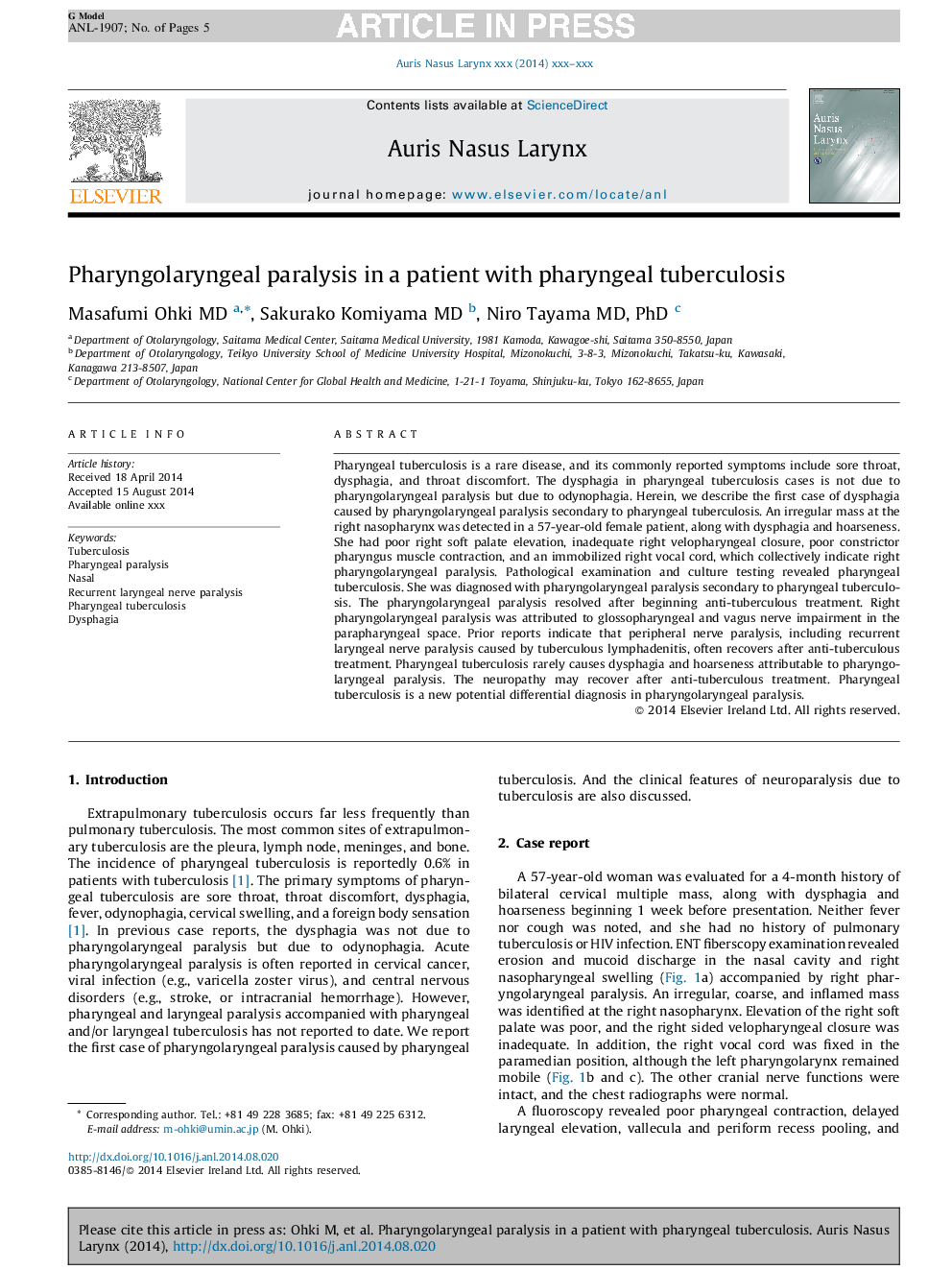| Article ID | Journal | Published Year | Pages | File Type |
|---|---|---|---|---|
| 8755280 | Auris Nasus Larynx | 2015 | 5 Pages |
Abstract
Pharyngeal tuberculosis is a rare disease, and its commonly reported symptoms include sore throat, dysphagia, and throat discomfort. The dysphagia in pharyngeal tuberculosis cases is not due to pharyngolaryngeal paralysis but due to odynophagia. Herein, we describe the first case of dysphagia caused by pharyngolaryngeal paralysis secondary to pharyngeal tuberculosis. An irregular mass at the right nasopharynx was detected in a 57-year-old female patient, along with dysphagia and hoarseness. She had poor right soft palate elevation, inadequate right velopharyngeal closure, poor constrictor pharyngus muscle contraction, and an immobilized right vocal cord, which collectively indicate right pharyngolaryngeal paralysis. Pathological examination and culture testing revealed pharyngeal tuberculosis. She was diagnosed with pharyngolaryngeal paralysis secondary to pharyngeal tuberculosis. The pharyngolaryngeal paralysis resolved after beginning anti-tuberculous treatment. Right pharyngolaryngeal paralysis was attributed to glossopharyngeal and vagus nerve impairment in the parapharyngeal space. Prior reports indicate that peripheral nerve paralysis, including recurrent laryngeal nerve paralysis caused by tuberculous lymphadenitis, often recovers after anti-tuberculous treatment. Pharyngeal tuberculosis rarely causes dysphagia and hoarseness attributable to pharyngolaryngeal paralysis. The neuropathy may recover after anti-tuberculous treatment. Pharyngeal tuberculosis is a new potential differential diagnosis in pharyngolaryngeal paralysis.
Related Topics
Health Sciences
Medicine and Dentistry
Medicine and Dentistry (General)
Authors
Masafumi Ohki, Sakurako Komiyama, Niro Tayama,
